
The Rideau Canal is a 202-kilometre long canal that links the Ottawa River at Ottawa with the Cataraqui River and Lake Ontario at Kingston, Ontario, Canada. Its 46 locks raise boats from the Ottawa River 83 metres upstream along the Rideau River to the Rideau Lakes, and from there drop 50 metres downstream along the Cataraqui River to Kingston.

Carleton University is an English-language public research university in Ottawa, Ontario, Canada. Founded in 1942 as Carleton College, the institution originally operated as a private, non-denominational evening college to serve returning World War II veterans. Carleton was chartered as a university by the provincial government in 1952 through The Carleton University Act, which was then amended in 1957, giving the institution its current name. The university is named after the now-dissolved Carleton County, which included the city of Ottawa at the time the university was founded.
The National Arts Centre Orchestra is a Canadian orchestra based in Ottawa, Ontario led by music director Alexander Shelley. The NAC Orchestra's primary concert venue is Southam Hall at the National Arts Centre. Since its inception, the Orchestra has commissioned more than 90 works, mostly from Canadian composers. The NAC Orchestra has made over 50 commercially released recordings. The Orchestra has visited more than 125 cities in Canada and more than 130 cities internationally in its 51-year history, including a coast-to-coast Canadian tour in 1999 and again in 2017. In May 2019, the NAC Orchestra completed a major European tour, performing and delivering education events in five countries.

The National Arts Centre (NAC) is a performing arts organization in Ottawa, Ontario, along the Rideau Canal. It is based in the eponymous National Arts Centre building.
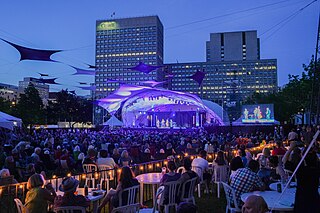
Celebrating its 45th anniversary in 2025, the Ottawa Jazz Festival held in Ottawa, Canada continues to be a trailblazer in the music festival scene. It showcases a wide range of jazz genres, including swing, jive, fusion jazz, hot jazz, boogie as well as diverse cultures and traditions. It is the only outdoor music festival in the city's downtown core. The festival highlights "a wide range of Canadian and international musical greats to Canada's capital." Additionally, it features new and emerging talent covering a spectrum from pop and rock to lush harmonies. While jazz is the core focus, the festival also includes music from genres such as such as blues, rock and indie.

As the Canadian province with the largest population, Ontario has a particularly prominent role in Canadian music. The provincial capital city of Toronto, Canada's largest municipality, is home to much of the English Canadian music industry and many individual musicians, and the most popular destination for musicians from other parts of Canada, besides French-Canadian musicians, looking to advance their careers. Toronto also supports Canadian music as the centre of English language media in Canada. Hamilton, Ottawa, Kingston and Guelph have also been important centres for Canadian music.
Walter Prystawski, CM is a Canadian classical violinist, conductor and teacher. For many years he was the concertmaster of the National Arts Centre Orchestra in Ottawa.

Elgin Street is a street in the Downtown core of Ottawa, Ontario, Canada. Originally named Biddy's Lane, it was later named after Lord Elgin.

The Victoria Theatre and Concert Hall is a performing arts centre in the Central Area of Singapore, situated along Empress Place. It is a complex of two buildings and a clock tower joined together by a common corridor; the oldest part of the building was first built in 1862, and the complex was completed in 1909. The complex has undergone a number of renovations and refurbishment, mostly recently in 2010 when the complex was closed for a four-year renovation project. It reopened on 15 July 2014.

Confederation Park(French: Parc de la Confédération) is a public park and National Historic Site of Canada, located in the downtown core of Ottawa, Ontario, Canada. It is bordered on the south by Laurier Avenue and Ottawa City Hall; on the east by the Rideau Canal and National Defence Headquarters; on the north by the Mackenzie King Bridge, the Rideau Centre and the National Arts Centre; and to the west by Elgin Street and the Lord Elgin Hotel.
Opera Lyra Ottawa (OLO) was a non-profit professional opera company based in Ottawa, Ontario, Canada. It was founded in 1984 by Canadian soprano Diana Gilchrist after the demise of the National Arts Centre's annual summer opera productions. The company performed fully staged and concert version operas in their original language with French and English surtitles at the National Arts Centre as well as running outreach and young artist programs.

Ottawa Chamberfest is a music festival held by the Ottawa Chamber Music Society, also known as Chamberfest, in Ottawa, Ontario, Canada. This year, their 30th Anniversary edition will be held between July 25 and August 8, 2024.
John Geggie is an Ottawa-based Canadian bassist who performs jazz with several Ottawa-based groups and performers. As well, he is a classical bassist who has performed in the National Arts Centre Orchestra, in Ottawa-area chamber orchestras, and in chamber music concerts.
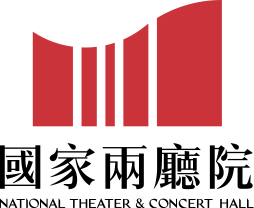
The National Theater Hall and National Concert Hall, or together the National Theater and Concert Hall, are twin performing arts venues at Liberty Square in Zhongzheng District, Taipei, Taiwan. Completed in 1987, the landmarks stand on the south and north sides of the square with Chiang Kai-shek Memorial Hall to the east. Together the venues are referred to by the abbreviation NTCH. The square itself sits near Ketagalan Boulevard, site of the Presidential Office Building, the National Central Library, the National Taiwan Museum, and the 228 Peace Memorial Park.
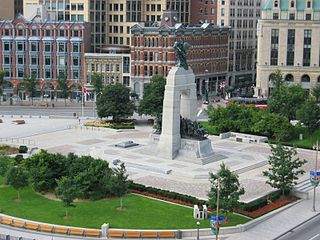
Confederation Square is an urban square in Ottawa, Ontario, Canada, and is considered the second most important ceremonial centre in Canada's capital city, after Parliament Hill. Roughly triangular in area, with Canada's National War Memorial at its centre and the Valiants Memorial at its periphery, the square is bounded by Wellington Street to the north and branches of Elgin Street to the east and west.

Alexander Gordon Shelley is an Echo Music Prize-winning English conductor. He is music director of the National Arts Centre Orchestra in Ottawa, as well as principal associate conductor of the Royal Philharmonic Orchestra and Artistic and Music Director Designate of Artis—Naples and the Naples Philharmonic. Shelley was the unanimous winner of the 2005 Leeds Conductors Competition. From 2009 to 2017 he was chief conductor of the Nuremberg Symphony Orchestra. He was also artistic director of the Deutsche Kammerphilharmonie Bremen's Echo and Deutscher Gründerpreis winning "Zukunftslabor". He is recipient of the Cross of the Order of Merit of the Federal Republic of Germany.

Jonathan Estabrooks is a Canadian record producer, filmmaker, trained Operatic baritone, and graduate of the Juilliard School. He has produced and mixed over 75 albums to date in the classical, jazz and crossover genres. He was executive producer and creator of Artists for the Arts, a charity single and music video in support of Americans for the Arts in their efforts to save the National Endowment for the Arts He was active in the Canadian and American opera, concert and musical theatre worlds and on YouTube.

Rogers Centre Ottawa is a convention centre located in the downtown core of Ottawa, Ontario, Canada. It opened in April 2011. The award-winning architecture was designed by Ritchard Brisbin. The Centre replaces the Ottawa Congress Centre, which opened in 1983 and is built on the site of the Ottawa Congress Centre building which was demolished in 2008–2009.
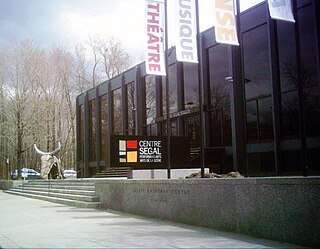
The Segal Centre for Performing Arts, formerly the Saidye Bronfman Centre for the Arts, is a theatre in Montreal, Quebec, Canada. It is located at 5170 chemin de la Côte-Sainte-Catherine, in the borough of Côte-des-Neiges–Notre-Dame-de-Grâce.
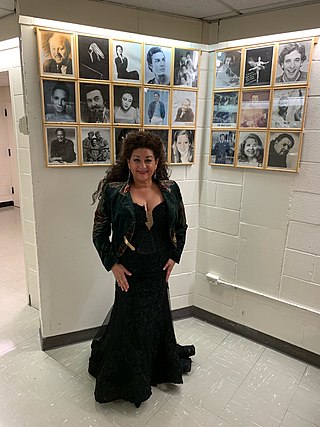
Sharon Azrieli is a soprano singer and Cantor from Montreal, Quebec. She moved to New York City after attending Vassar College, from which she graduated with a degree in Art History. She also holds degrees from Juilliard School and the University of Montreal.


















